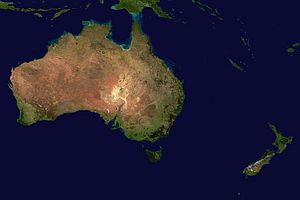Australian Prime Minister Scott Morrison formally invited New Zealand Prime Minister Jacinda Ardern to attend an Australian National Cabinet meeting held on May 5. The National Cabinet meetings are attended by the prime minister and all state and territory premiers and chief ministers. Ardern’s formal acceptance of the invitation was a historic first, and a sign of increasing Trans-Tasman solidarity in a time of crisis.
The main topic of discussion was a “Trans-Tasman bubble,” which would allow both Australians and their New Zealand counterparts to freely travel between the two countries. The opening up of the bubble will serve to boost the kickstart of the respective economies not only in terms of domestic tourism but also the flow of people for business purposes and trade.
Australia and New Zealand already enjoy close diplomatic relations. The Trans-Tasman Travel Agreement allows for the free movement of citizens from one country to the other. The governments of Australia and New Zealand have also witnessed a convergence of economic, political, and diplomatic interests.
The Trans-Tasman bubble concept emerged as both Australia and New Zealand have seen an effective response to the current pandemic. New Zealand opted for a sharp lockdown measure to stamp out the virus, whereas Australia has adopted a more gradualist approach in flattening the curve. Both nation’s governmental agility and flexibility have enabled politicians to put ideology aside, consequently allowing them to listen to expert evidence and act accordingly. Strong and effective leadership through forms of fact-based decision-making, calm communication, and clear direction has made both Australia and New Zealand the envy of the Western world.
Elsewhere, the results emerging from the United States have demonstrated the inability of the Trump administration to deal with the current health crisis. Similarly, China’s economic slowdown intensified by the current economic climate has exposed the vacuum in global leadership.
Crises are often recognized to clarify the national direction. Under the current conditions, both Australia and New Zealand have accepted the fast-paced reality of the post-COVID-19 environment and the Australian government has considered a new targeted focus of increased self-reliance.
This self-reliance will come in the form of speaking up, as has been witnessed in the Australian government’s push – now backed by the EU — for an independent international investigation into the origins of the virus that causes COVID-19. The position of the Australian government saw pushback from the Chinese ambassador, who denounced a possible inquiry as a political witch hunt guided by an anti-China undertone. However, Australia has adopted a more nuanced position compared to the United States. The current attack on multilateral organizations by the Trump administration runs counter to Australia’s recognition of multilateral importance in the strategic outlook.
As Australia understands the importance of multilateral cooperation, the appropriate response is not to follow the United States in these criticisms. Rather, Australia should step in to assist the revival of multilateralism, which has been weakened by this crisis.
What is in Australia’s self-interest is a revival of multilateral cooperation. Australia may not have the ability to coerce the United States or China into adopting multilateralism, but as a middle power, Australia can continue to “punch above its weight.” Indeed, there is a unity ticket here: Australia has an open economy and has benefited greatly from cooperation from multilateral institutions. At the same time, multilateralism allows Australia’s narrative to shape and influence global discourse or ideas and ideology.
Australia remains a pivotal country that favors a multilateral order in enhancing modes of peace, security, justice, and most of all the ability to handle a crisis. Australia’s success in the current health pandemic and continued engagement with New Zealand has allowed Australia to be seen as a state to emulate. Australia’s ability to ensure its own significance is appreciated by leveraging capabilities to enhance multilateralism and subsequently remain a respected nation.
Conor McLaughlin is an Australian Government Endeavour Scholar whose research focuses on Australian diplomatic relations. He is a policy analyst for both CANZUK International and the ASEAN-Australia Strategic Youth Dialogue.

































